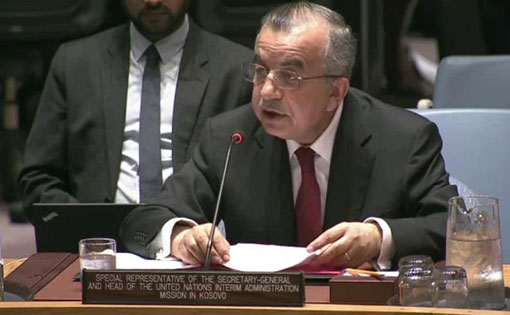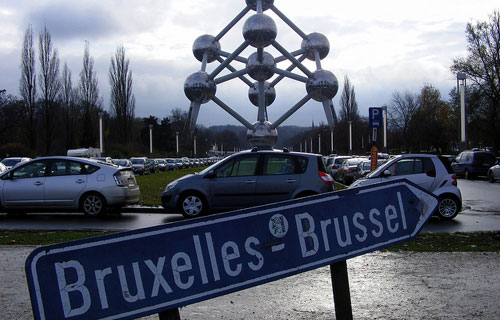Tanin: UNMIK for the promotion of the dialogue between Belgrade and Priština
UNMIK supports the promotion of the dialogue between Belgrade and Priština at all levels, from central authorities to civil society, together with the EU and other partners, stated Special Representative of the UN Secretary-General and Head of UNMIK Zahir Tanin last night.

At the regular UN Security Council session on Kosovo held in New York, Tanin stated that the cooperation between the Serbian Orthodox Church and Kosovo authorities had suffered several setbacks during the previous year.
"Unresolved issues related to church property and the enforcement of legal protection have strained relations. We continue to receive reports of incidents, including thefts, at households owned by Kosovo Serbs, which causes concern," Tanin underlined.
The Head of UNMIK pointed out that the dialogue between Belgrade and Priština was essential, while its ultimate success had to be grounded in collaboration among all leaders, across the region.
Tanin stated that even though Kosovo had established a strong legal framework, the implementation of that framework had remained inconsistent, the administration of justice unacceptably slow and instances of political interference common.
"Corruption at many levels increases public frustration, harms the daily lives of all persons in Kosovo by reducing economic development, and undermines faith in the political system," Tanin underlined.
Having warned of the complex challenges Kosovo was to face this year, the Head of UNMIK looked back on the recent months during which, as he stated, the polarization of the Kosovo political landscape had reached levels where progress was being impeded, the most obvious example of this being the repeated use of violence by the opposition to prevent the Kosovo Assembly as well as other government institutions from conducting their work.
"I believe this is an opportune time for all to shift local and international focus away from political battles, and towards more fundamental issues," stated Tanin, pointing out that political leaders should be more outward-looking in exploring opportunities for regional cooperation rather than focusing on limited political interests.


